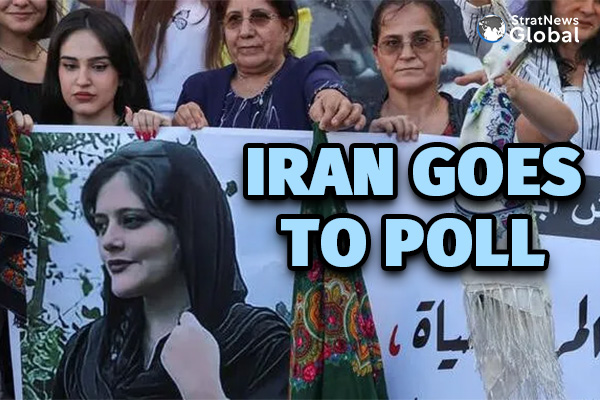The death of 22-year-old Mahsa Amini in police custody sparked massive anti-government protests across Iran in 2022, which were crushed by brute force.
Iran goes to the polls on Friday in the first election since the anti-government protests rocked the theocratic nation in 2022. The protests were sparked by the death of Masha Amini, a 22-year-old Kurdish-Iranian woman, three days after she was arrested by Iran’s morality police. Iranian women played a key role in the protests, with many defying the orthodox government by publicly removing the hijab or compulsory Islamic headscarf.
The brutal crackdown on the protests, with mass jail terms and executions, led to the 27-nation EU imposing sanctions on ministers, morality police and military officers for human rights abuses.
A lot will depend on the turnout for the two sets of elections Friday, one for Parliament and the other for the Assembly of Experts, an 88-member clerical body which selects the country’s supreme leader. Arguing that a high turnout will legitimize the Islamic Republic, activists and rights groups are aggressively promoting hashtags like #VOTENoVote widely on various social media platforms.
On the other hand, Iran’s Supreme Leader Ayatollah Ali Khamenei has described voting as a religious duty, and accused the country’s “enemies”– the United States and Israel — of attempting to create divisions and despair among Iranian voters. “Elections are a duty, and anyone who opposes the elections is opposing the Islamic Republic and Islam,” he announced. “Each vote is like a missile launched at the enemy’s heart,” concurred Hossein Salami, who heads the country’s elite Revolutionary Guards.
Some analysts say the legitimacy of Iran’s theocratic system will be tested by the vote, underpinned by economic hardship fuelled by western sanctions, blatant corruption, and a young population angry over the stringent political and social restrictions in the country.
According to the interior ministry, 15,200 candidates will run for the 290-seat parliament, with the Guardian Council — an unelected body comprising six clerics and six legal experts authorised to assess laws and election candidates — approving 75 percent of initially registered candidates. The complete results are likely in three days. Given the prevailing mood, low voter turnout could ensure that the Conservatives will continue to rule.
Also See
In a career spanning three decades and counting, Ramananda (Ram to his friends) has been the foreign editor of The Telegraph, Outlook Magazine and the New Indian Express. He helped set up rediff.com’s editorial operations in San Jose and New York, helmed sify.com, and was the founder editor of India.com.
His work has featured in national and international publications like the Al Jazeera Centre for Studies, Global Times and Ashahi Shimbun. But his one constant over all these years, he says, has been the attempt to understand rising India’s place in the world.
He can rustle up a mean salad, his oil-less pepper chicken is to die for, and all it takes is some beer and rhythm and blues to rock his soul.
Talk to him about foreign and strategic affairs, media, South Asia, China, and of course India.





